OVERVIEW
"Any Time, Any Place"
Spectre has an impressive combat history. During Vietnam, gunships destroyed more than 10,000 trucks and were credited with many life-saving close air support missions. AC-130s suppressed enemy air defense systems and attacked ground forces during Operation Urgent Fury in Grenada. This enabled the successful assault of Point Salines airfield via airdrop and airland of friendly forces. The gunships had a primary role during Operation Just Cause in Panama by destroying Panamanian Defense Force Headquarters and numerous command and control facilities by surgical employment of ordnance in an urban environment. As the only close air support platform in the theater, Spectres were credited with saving the lives of many friendly personnel. During Operation Desert Storm, Spectres provided air base defense and close air support for ground forces. AC-130s were also used during Operations Continue Hope and United Shield in Somalia, providing close air support for United Nations ground forces. The gunships have most recently played a pivotal role during operations in support of the NATO mission in Bosnia-Herzegovina, providing air interdiction against key targets in the Sarajevo area.
"Urgent Fury" Grenada Oct 1983 Spectre was overhead in Grenada October 25, 1983 paving the way for the assault by multi-national forces which liberated the island. Spectre was praised for "saving the day" by providing last-second surveillance and intelligence to the air assault forces, silencing anti-aircraft artillery emplacements, knocking out enemy armored personnel carriers, defending political dignitaries surrounded by enemy troops and relieving troops in combat. The island of Grenada the morning of the Operation.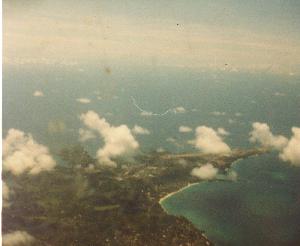 Full ammunition load (40mm & 105mm)
Full ammunition load (40mm & 105mm)
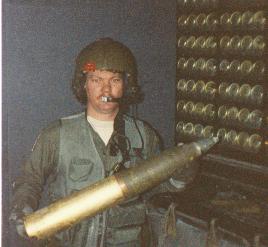
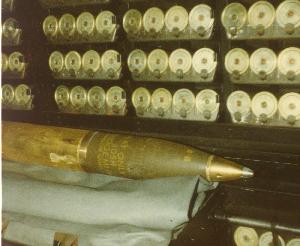
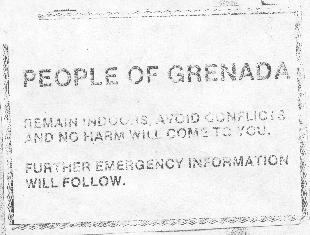
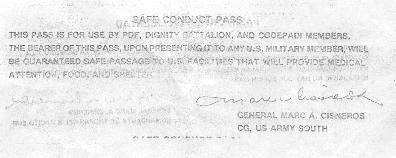 "Just Cause"
Panama Canal
Dec 1989
The mission was to secure the safety of
American citizens and American interests in the Panama Canal Treaty, to
establish law and order, to restore democracy, and to bring Panama's dictator
Manuel Noriega to justice.
The gunship participated in the
reestablishment of democracy in the Republic of Panama during Operation Just
Cause. By destroying the headquarters for the Panamanian Defense Force, and
providing fire support for the Army Ranger assault on Rio Hato, the 16th SOS
received both the MacKay Trophy and the Military Airlift Command Aircrew of
the Year Award for 1989.
"Just Cause"
Panama Canal
Dec 1989
The mission was to secure the safety of
American citizens and American interests in the Panama Canal Treaty, to
establish law and order, to restore democracy, and to bring Panama's dictator
Manuel Noriega to justice.
The gunship participated in the
reestablishment of democracy in the Republic of Panama during Operation Just
Cause. By destroying the headquarters for the Panamanian Defense Force, and
providing fire support for the Army Ranger assault on Rio Hato, the 16th SOS
received both the MacKay Trophy and the Military Airlift Command Aircrew of
the Year Award for 1989.
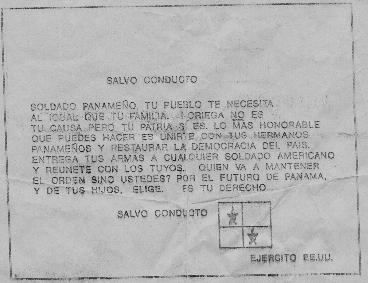
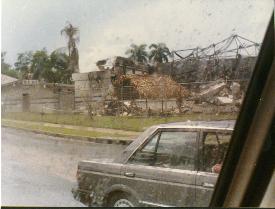
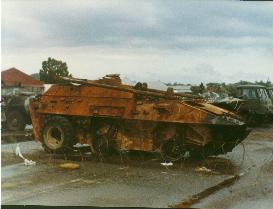
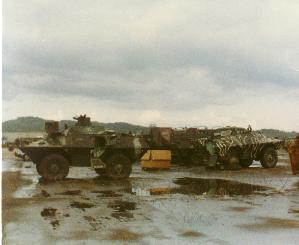 "Desert Shield"
Saudi Arabia
1990-1991
The 16th SOS arrived in Saudi Arabia September 12, 1990 to
participate in Operations "Desert Shield" the protection of Saudi Arabia.
"Desert Shield"
Saudi Arabia
1990-1991
The 16th SOS arrived in Saudi Arabia September 12, 1990 to
participate in Operations "Desert Shield" the protection of Saudi Arabia.
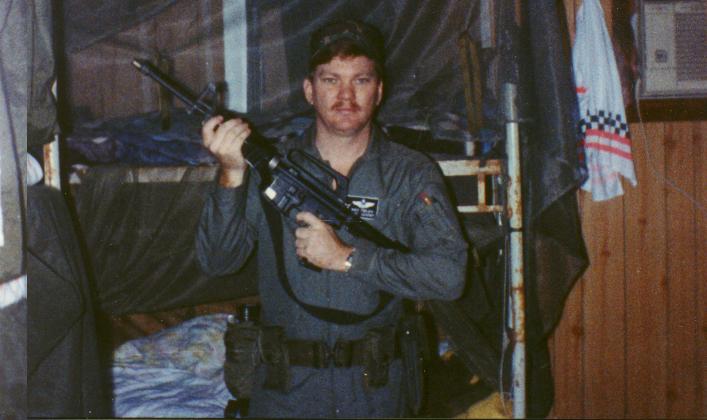
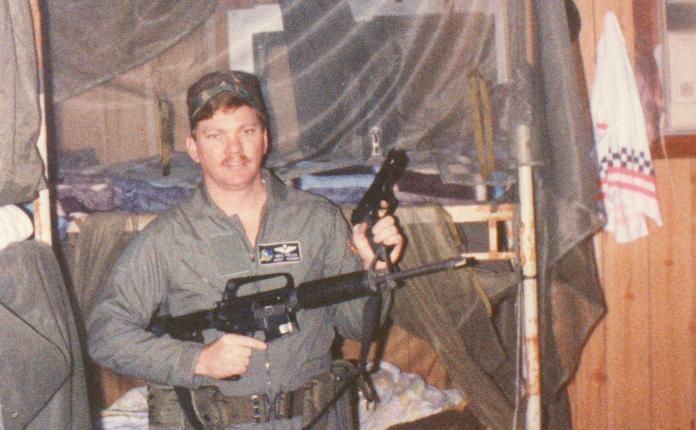
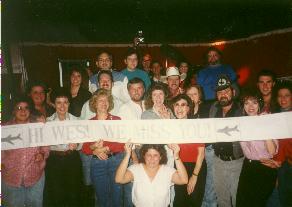
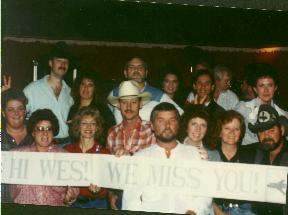 Friends: "Never forget who cares about you".
"Desert Storm"
Iraq-Kuwait
1991
During the war, AC-130H gunships flew armed reconnaissance and
destroyed ground targets. The unit flew 50 combat missions in Desert Storm.
A heavy price was paid when a AC-130 was lost and 14 brave airmen were killed
January 31, 1991, while supporting coalition forces engaged in the Battle of
Khafji, Saudi Arabia. The biggest
single lost for the Air Force during the war to liberation Kuwait. Call sign
"Spirit 03".
Friends: "Never forget who cares about you".
"Desert Storm"
Iraq-Kuwait
1991
During the war, AC-130H gunships flew armed reconnaissance and
destroyed ground targets. The unit flew 50 combat missions in Desert Storm.
A heavy price was paid when a AC-130 was lost and 14 brave airmen were killed
January 31, 1991, while supporting coalition forces engaged in the Battle of
Khafji, Saudi Arabia. The biggest
single lost for the Air Force during the war to liberation Kuwait. Call sign
"Spirit 03".
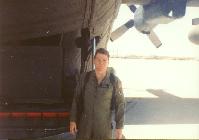
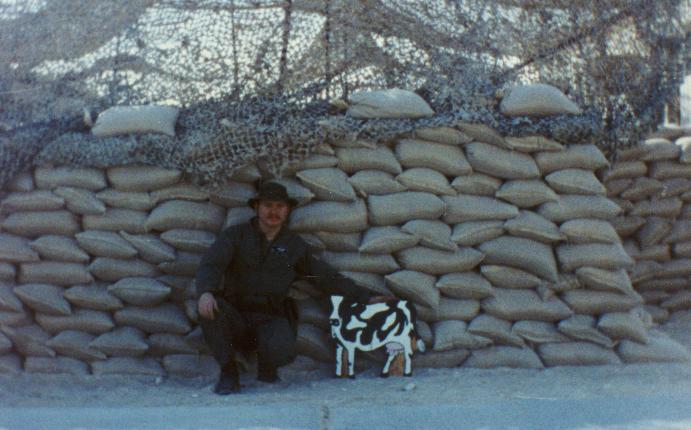
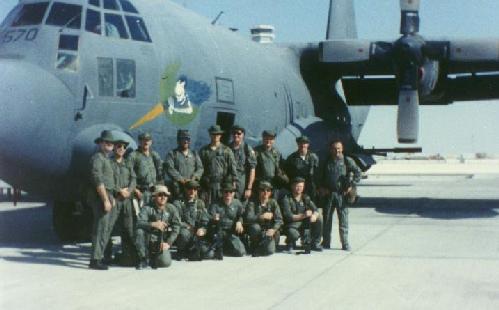 "Eastern Exit"
Somalia, Africa
Jan, 1991
On 01 January 1991, the US Ambassador to Somalia requested military
assistance to evacuate the Embassy. Americans and other foreign nationals had
sought shelter in the Embassy compound that day as the reign of Somali dictator
Siad Barre disintegrated into a confused battle for control of Mogadishu. The
next day, Operation EASTERN EXIT was initiated. Conducted between 2 -11 January
1991, participating units included USS Guam, USS Trenton, 4th Marine
Expeditionary Bde, Air Force AC-130 (intelligence gathering and fire support,
and 9-man Navy SEAL team), and other elements. Responding to the deteriorating
situation, Operation Eastern Exit involved the evacuation of 281 noncombatants
from the US Embassy in Mogadishu, Somalia.
"Restore Hope"
"Continue Hope"
Somalia, Africa
1993-1995
During 1993 and 1994, the 16th SOS deployed to Africa in
support of the United Nations relief operations in Somalia, Continue Hope.
During this deployment, a gunship was destroyed, due to an in-borne detonation
of the 105mm gun while airborne. Eight of the 14 aircrew members lost their
lives. Call sign "Jockey 14".
"Eastern Exit"
Somalia, Africa
Jan, 1991
On 01 January 1991, the US Ambassador to Somalia requested military
assistance to evacuate the Embassy. Americans and other foreign nationals had
sought shelter in the Embassy compound that day as the reign of Somali dictator
Siad Barre disintegrated into a confused battle for control of Mogadishu. The
next day, Operation EASTERN EXIT was initiated. Conducted between 2 -11 January
1991, participating units included USS Guam, USS Trenton, 4th Marine
Expeditionary Bde, Air Force AC-130 (intelligence gathering and fire support,
and 9-man Navy SEAL team), and other elements. Responding to the deteriorating
situation, Operation Eastern Exit involved the evacuation of 281 noncombatants
from the US Embassy in Mogadishu, Somalia.
"Restore Hope"
"Continue Hope"
Somalia, Africa
1993-1995
During 1993 and 1994, the 16th SOS deployed to Africa in
support of the United Nations relief operations in Somalia, Continue Hope.
During this deployment, a gunship was destroyed, due to an in-borne detonation
of the 105mm gun while airborne. Eight of the 14 aircrew members lost their
lives. Call sign "Jockey 14".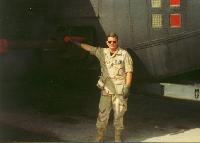
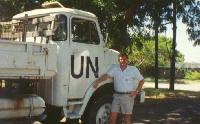
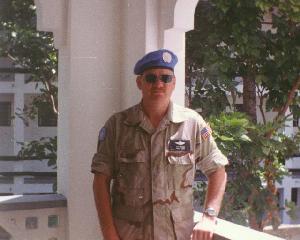
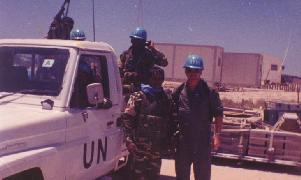
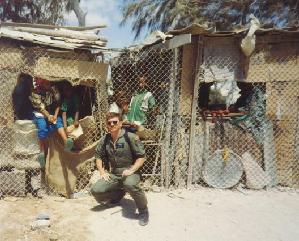
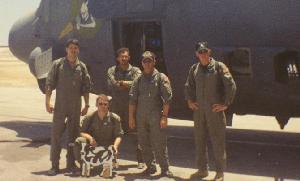
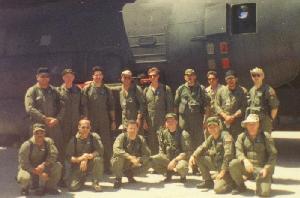 "Deliberate Force"
Spectre was actively patrolling the hostile skies over
Bosnia-Herzegovina providing protective air cover and close air support to UN
protection forces (UNPROFOR).
Operation DELIBERATE FORCE Aug. 19, 1995, the largest
NATO air operation in history. On the first night, "GHOST-31",
aircraft 69-6568 struck an artillery/mortar position southeast of Sarajevo
marking the first time this aircraft had ever fired in combat. The 16th SOS
flew multiple CSAR sorties from Sept. 6-8, 1995 in support of the rescue
attempt of the French Mirage aircrew, callsign "EBRO-33", downed by
a surface-to-air missile near Pale. Operation DELIBERATE FORCE lasted until
Sept. 15, 1995, in this operation the 16th SOS expended 268 rounds of 105MM
and 125 rounds of 40MM against early warning (EW) radar sites, command and
control (C2) buildings, mortar/artillery positions, and ammunition storage
areas.
After the fall of the eastern Bosnian "safe areas," in
July 1995, the international community agreed to steps to extend NATO air power.
NATO extended its threat of air strikes against Bosnian Serbs if they attacked
any of the remaining "safe areas" in Bosnia. "Safe areas"
include Gorazde, Tuzla, Bihac and Sarajevo. Serb forces wasted no time testing
the world's will and launched attacks against the "safe areas" of Zepa,
Bihac and Sarajevo. To complicate things even further, Croatian forces entered
the fighting in early August.
NATO launched a sustained air strike campaign, Operation
Deliberate Force, beginning on August 30, 1995, against Bosnian Serb
military targets in response to a Bosnian Serb mortar attack on civilians in
Sarajevo. Air strikes were conducted on eleven days during the period 29 August
through 14 September 1995. Of the total of 3515 sorties flown, 2470 were
penetrating sorties, which included attacks on 48 target complexes [consisting
of 338 individual targets within target complexes].
In the view of the US Defense Department, Operation DELIBERATE
FORCE proved that airpower can have a decisive role when serving achievable,
clear policy objectives. Airpower's efforts in helping to lift the siege of
Sarejevo saved lives and helped pave the way for a negotiated settlement.
Deliberate Force was the crucial step in bringing the warring parties to the
negotiating table at Dayton, leading to the peace agreement.
Spectre "568' finally shakes a very old ghost
"Deliberate Force"
Spectre was actively patrolling the hostile skies over
Bosnia-Herzegovina providing protective air cover and close air support to UN
protection forces (UNPROFOR).
Operation DELIBERATE FORCE Aug. 19, 1995, the largest
NATO air operation in history. On the first night, "GHOST-31",
aircraft 69-6568 struck an artillery/mortar position southeast of Sarajevo
marking the first time this aircraft had ever fired in combat. The 16th SOS
flew multiple CSAR sorties from Sept. 6-8, 1995 in support of the rescue
attempt of the French Mirage aircrew, callsign "EBRO-33", downed by
a surface-to-air missile near Pale. Operation DELIBERATE FORCE lasted until
Sept. 15, 1995, in this operation the 16th SOS expended 268 rounds of 105MM
and 125 rounds of 40MM against early warning (EW) radar sites, command and
control (C2) buildings, mortar/artillery positions, and ammunition storage
areas.
After the fall of the eastern Bosnian "safe areas," in
July 1995, the international community agreed to steps to extend NATO air power.
NATO extended its threat of air strikes against Bosnian Serbs if they attacked
any of the remaining "safe areas" in Bosnia. "Safe areas"
include Gorazde, Tuzla, Bihac and Sarajevo. Serb forces wasted no time testing
the world's will and launched attacks against the "safe areas" of Zepa,
Bihac and Sarajevo. To complicate things even further, Croatian forces entered
the fighting in early August.
NATO launched a sustained air strike campaign, Operation
Deliberate Force, beginning on August 30, 1995, against Bosnian Serb
military targets in response to a Bosnian Serb mortar attack on civilians in
Sarajevo. Air strikes were conducted on eleven days during the period 29 August
through 14 September 1995. Of the total of 3515 sorties flown, 2470 were
penetrating sorties, which included attacks on 48 target complexes [consisting
of 338 individual targets within target complexes].
In the view of the US Defense Department, Operation DELIBERATE
FORCE proved that airpower can have a decisive role when serving achievable,
clear policy objectives. Airpower's efforts in helping to lift the siege of
Sarejevo saved lives and helped pave the way for a negotiated settlement.
Deliberate Force was the crucial step in bringing the warring parties to the
negotiating table at Dayton, leading to the peace agreement.
Spectre "568' finally shakes a very old ghost 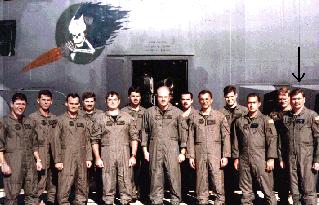
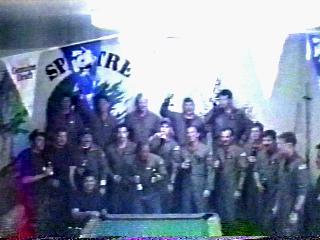 After a long mission over Sarajevo,
our crew celebrates in the hooch bar.
BRINDISI, ITALY
It was a long time coming, but the l6th Special Operations Squadron's
AC-130H tail No. 568 finally exercised a ghost that has been haunting it for more than 20
years.
After a long mission over Sarajevo,
our crew celebrates in the hooch bar.
BRINDISI, ITALY
It was a long time coming, but the l6th Special Operations Squadron's
AC-130H tail No. 568 finally exercised a ghost that has been haunting it for more than 20
years.